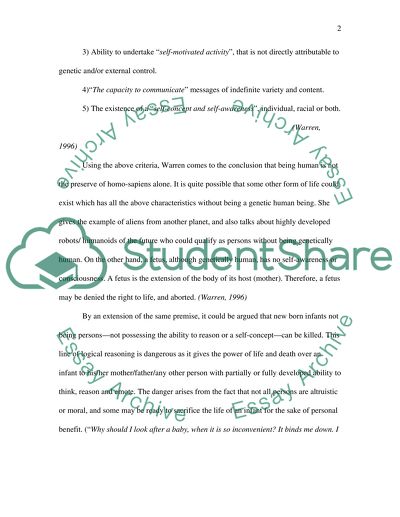Cite this document
(A Womans Right to Abortion: the Concept of Genetic Humanity Essay, n.d.)
A Womans Right to Abortion: the Concept of Genetic Humanity Essay. Retrieved from https://studentshare.org/philosophy/1519045-philosophical-paper-on-an-essay-about-abortion
A Womans Right to Abortion: the Concept of Genetic Humanity Essay. Retrieved from https://studentshare.org/philosophy/1519045-philosophical-paper-on-an-essay-about-abortion
(A Womans Right to Abortion: The Concept of Genetic Humanity Essay)
A Womans Right to Abortion: The Concept of Genetic Humanity Essay. https://studentshare.org/philosophy/1519045-philosophical-paper-on-an-essay-about-abortion.
A Womans Right to Abortion: The Concept of Genetic Humanity Essay. https://studentshare.org/philosophy/1519045-philosophical-paper-on-an-essay-about-abortion.
“A Womans Right to Abortion: The Concept of Genetic Humanity Essay”, n.d. https://studentshare.org/philosophy/1519045-philosophical-paper-on-an-essay-about-abortion.


